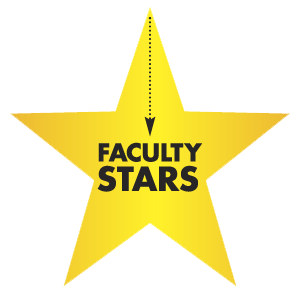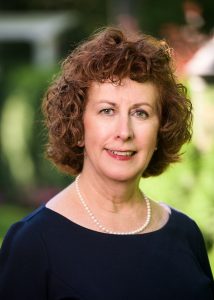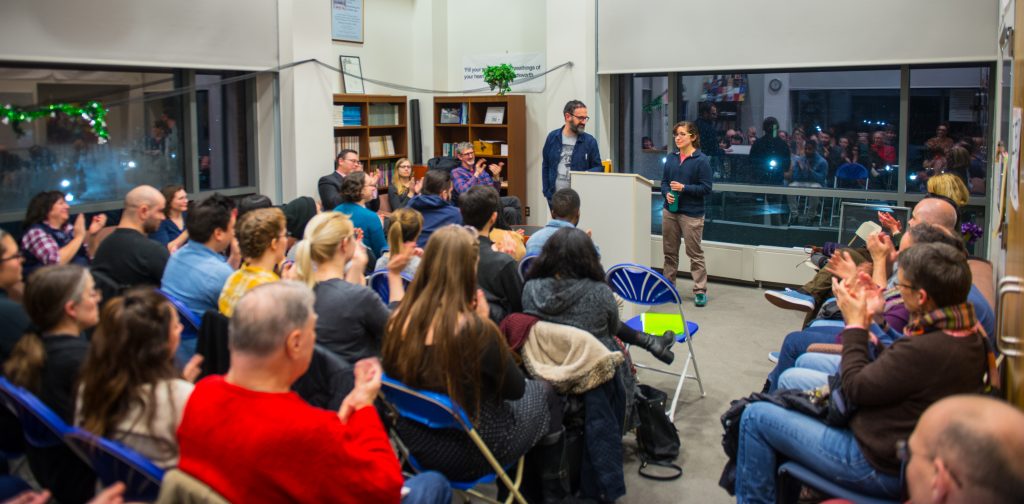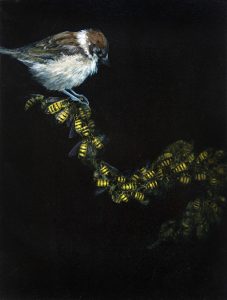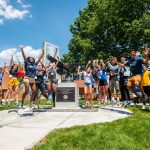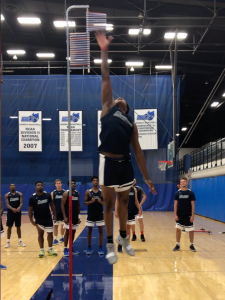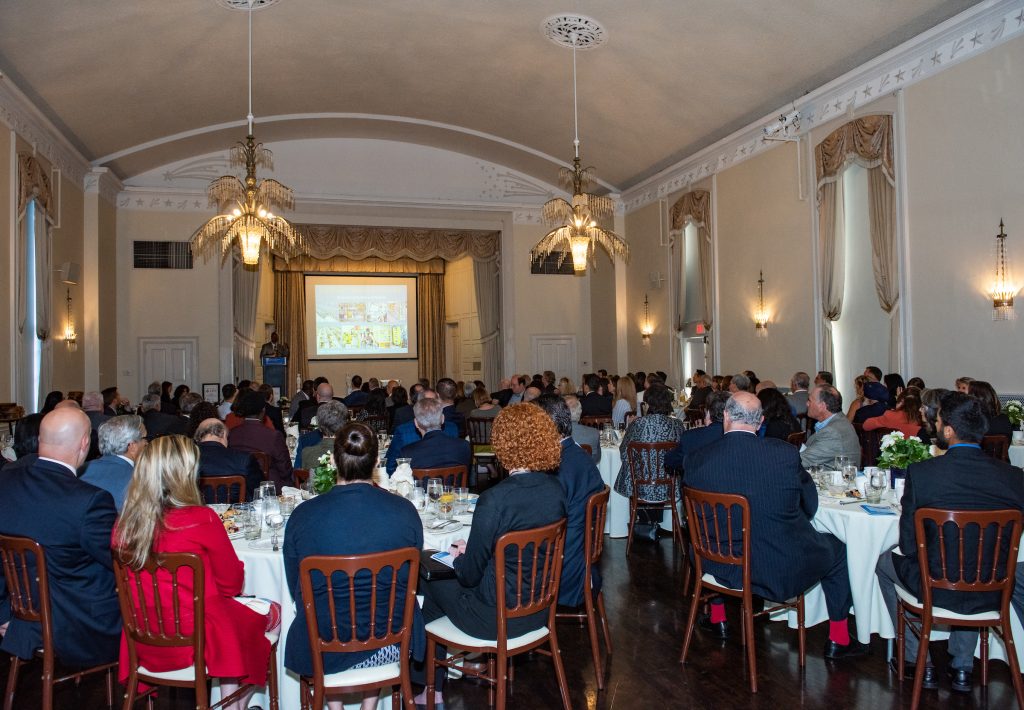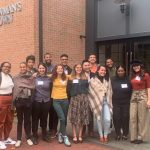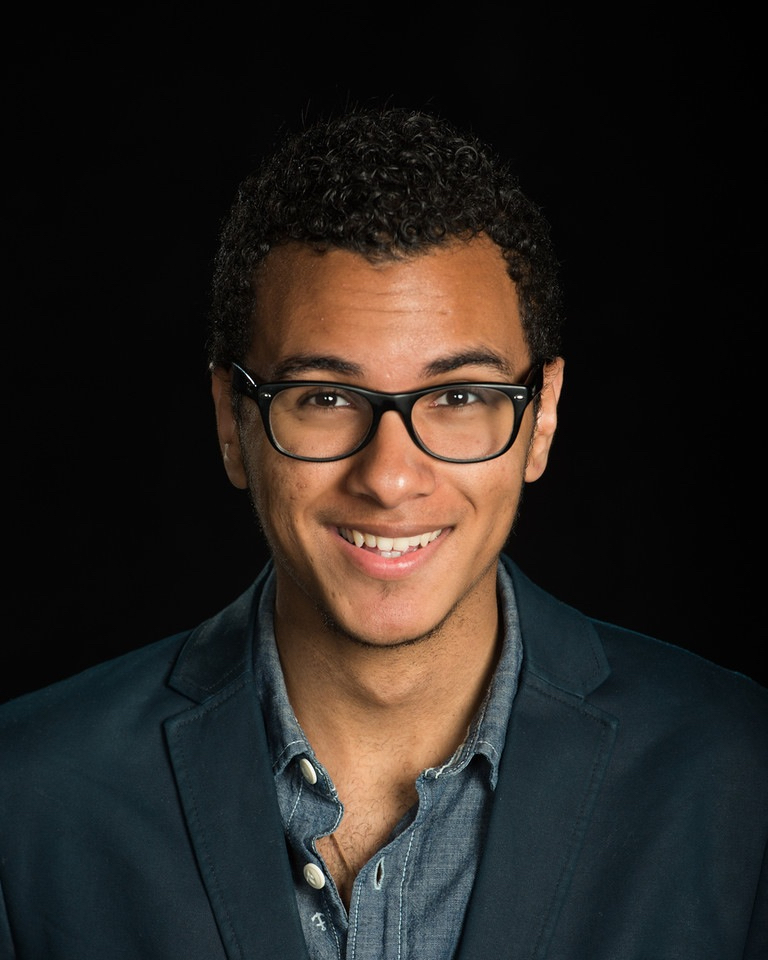![]()
![MFA Creative Writing Program Marks 10th Anniversary MFA Creative Writing Program Marks 10th Anniversary]()
The MFA Program will officially celebrate its 10th anniversary at an alumni reading and reception on Friday, October 4, at 7 p.m., in Engleman A120. The reading will feature Ryan Leigh Dostie, author of the memoir Formation, and Martina “Mick” Powell, author of the poetry chapbook, chronicle the body.
Once upon a time, Southern Connecticut State University didn’t have a master of fine arts in creative writing program. But for the past decade, the university’s MFA program has been attracting and educating writers who have found success in publishing their work, as well as in related arenas such as teaching and editing. The program is a quiet powerhouse, its graduates’ work winning prizes and finding its way into countless literary journals, onto best-seller lists, and into the hands of eager readers. It’s also the only full-residency program of its kind in Connecticut.
“When I first got here in 1994 and found out there was no MFA program at all in Connecticut, I was extremely surprised,” says English Professor Tim Parrish, one of the program’s founders. “I realized we had the quality of writing students here at Southern who could get MFAs, but because we didn’t have a program here, we had to send many of our creative writing undergrads to MFA programs in other states just in the first few years I was here.”
Parrish, who teaches fiction and memoir writing to undergraduates and graduates and is himself the author of three books, decided to propose an MFA program at Southern, to give his undergraduate writing students a way to continue their work at the university while earning the MFA degree. The Master of Arts in Creative Writing is the terminal degree in its field, similar to a Ph.D., and qualifies those who hold the degree to teach creative writing at the university level, among other types of positions. The university already offered a master’s degree in English, in which students could concentrate in creative writing, but bringing an MFA program to Southern would benefit student writers in ways the master’s concentration could not.
Parrish presented his first proposal to the English Department in 1997 — “just a sketch of an idea for an MFA program” he says – and the department supported it. In 2002, Parrish and English Professor Jeff Mock, a poet, wrote the first formal proposal. In 2004, fiction writer Robin Troy joined the English Department faculty, and together, Parrish, Mock, and Troy began rewriting the proposal. “We finally got it approved in 2009 and brought in the first class of MFA students that same year,” says Parrish.
“We started out with poets mostly, and a couple of fiction writers,” Parrish says. “The next year we started getting a lot more out-of-state students. I thought we’d be serving primarily Connecticut residents, but we became a national program. We had a really good word-of-mouth reputation.”
Troy, the author of two novels, recalls that when she first came to Southern, Parrish had already done “much of the heavy lifting” to get the MFA program off the ground, “and I got to arrive in time to join the fun. Sure, we still had a lot of work to do on the proposal, and presenting our program to the chancellor in Hartford, but the fundamental work of convincing our university why we should have an MFA program had already been done.” She calls Parrish “our hero, the true heart behind the program, without whom it never would have gotten off the ground.”
Troy explains that nationally, MFA programs generally are small, but are also highly competitive and very popular. These programs “undeniably bring an identity to their university,” Troy says, “and our program was no exception. MFA programs attract students full of heart and passion, and we felt that in our program at SCSU from the start. To me, bringing that kind of intense, passionate, terminal-degree program to a university is priceless.”
Parrish agrees, adding that a key ingredient in the program’s success is that it is a teaching community that is both very accessible and supportive to students. The MFA faculty develop close mentorships with students, Parrish says. “We try to help them realize their vision as writers – we meet them where they are.”
Troy adds that the MFA experience at SCSU extends far beyond the classroom, to one-on-one mentoring, after-class gatherings, on- and off-campus readings, events in New Haven, conference attendance across the country, and celebrating each other at thesis readings and in parties in people’s homes. “All of this contributed to our momentum in building a program that has clearly gained recognition for Southern as a whole,” she says.
![]()
English Professor Vivian Shipley, a CSU Professor and a highly-acclaimed poet, also speaks warmly about her mentoring relationships with her MFA students. “I have been lucky enough to have the program’s wonderful students in my MFA poetry workshops, and I am honored to be a part of it,” Shipley says, adding that she is especially proud of the students who chose her to direct their MFA poetry thesis and published a book as a result of the thesis, among them Lori DeSanti, Christine Beck, Pat Mottola, Brendan Walsh, Lynn Houston, and Mick Powell. Many of the rest of Shipley’s students have published extensively in major national journals and are now professors themselves. “So,” she says, “my teaching life has been enriched by the efforts of Tim Parrish and all he has done for the MFA.”
Parrish agrees with Shipley that Southern’s MFA grads “have had a lot of poetry books come out, and we’re starting to get more on the fiction and memoir side.” He says his initial instincts about the Southern’s creative writing students were correct – many of them have published books, some have become professors, and one made the New York Times bestseller list.
“People don’t have to come here as stars,” he says, “because we’re interested in folks who have a passion for literature and studying literature and who want to become better writers.” And that is clearly happening.
On campus, Parrish says, MFA students have a reputation for being smart and reliable. They’re in demand for working in departments around campus. Several students have become teaching interns and develop mentor/mentee relationships with undergrads. Interns work with full-time faculty in the classroom and learn from them, and in the process develop their own pedagogy. “People come out of our program and teach in others,” says Parrish, pointing to another example of the program’s success. He gives as examples MFA alumni Sheila Squillante, now the MFA program director at Chatham University; Jeff Voccola, now a professor of creative writing at Cuttstown University; and Lisa Mangini, who now teaches at Penn State.
Assistant Professor of English Rachel Furey, the program’s newest faculty member, says that the internship program is helpful for faculty, too, as having another person in the classroom can bring a fresh perspective to familiar material. Furey came to Southern in 2016 to teach fiction, and she enjoys the age diversity of students within the MFA program and the variety in the writing that her students do. “They’re not afraid to experiment a lot with their writing,” she says, “and this is good for me to see, as a writer myself.” Furey also points to the sense of community among the MFA students and faculty as one of the program’s strongest points.
Troy speaks nostalgically about the program, having left Southern in 2014 and now co-directing the Beargrass Writers Workshop in Missoula, Montana. “We just had so much fun together,” she says. “We represented such a range of ages and life experiences, all coming together with the common goal of making our varied, colorful voices heard. There was such a mutual respect among us, such a lack of pretension — and a shared feeling of never to want to say good-bye. I love seeing how our grads, even if they’ve moved on to different jobs or states, still stay in touch and circle back to Southern and each other. Ten years might sound like a long time, but it’s actually just a blink, and in that blink the MFA faculty at Southern has created a competitive, spirited program with real legs and heart. I’m proud to have been a part of it.”
RSVP for the October 4 MFA alumni reading and reception.


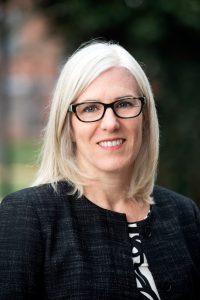 Vancour earned tenure and promotion to professor in the Department of Public Health, received the Outstanding Academic Advisor Award, Robert E. Jirsa Award for Service, and the Distinguished Academic Woman in Higher Education Leadership Award from the CT ACE Women’s Network.
Vancour earned tenure and promotion to professor in the Department of Public Health, received the Outstanding Academic Advisor Award, Robert E. Jirsa Award for Service, and the Distinguished Academic Woman in Higher Education Leadership Award from the CT ACE Women’s Network.

 Deliver to:
Deliver to: 